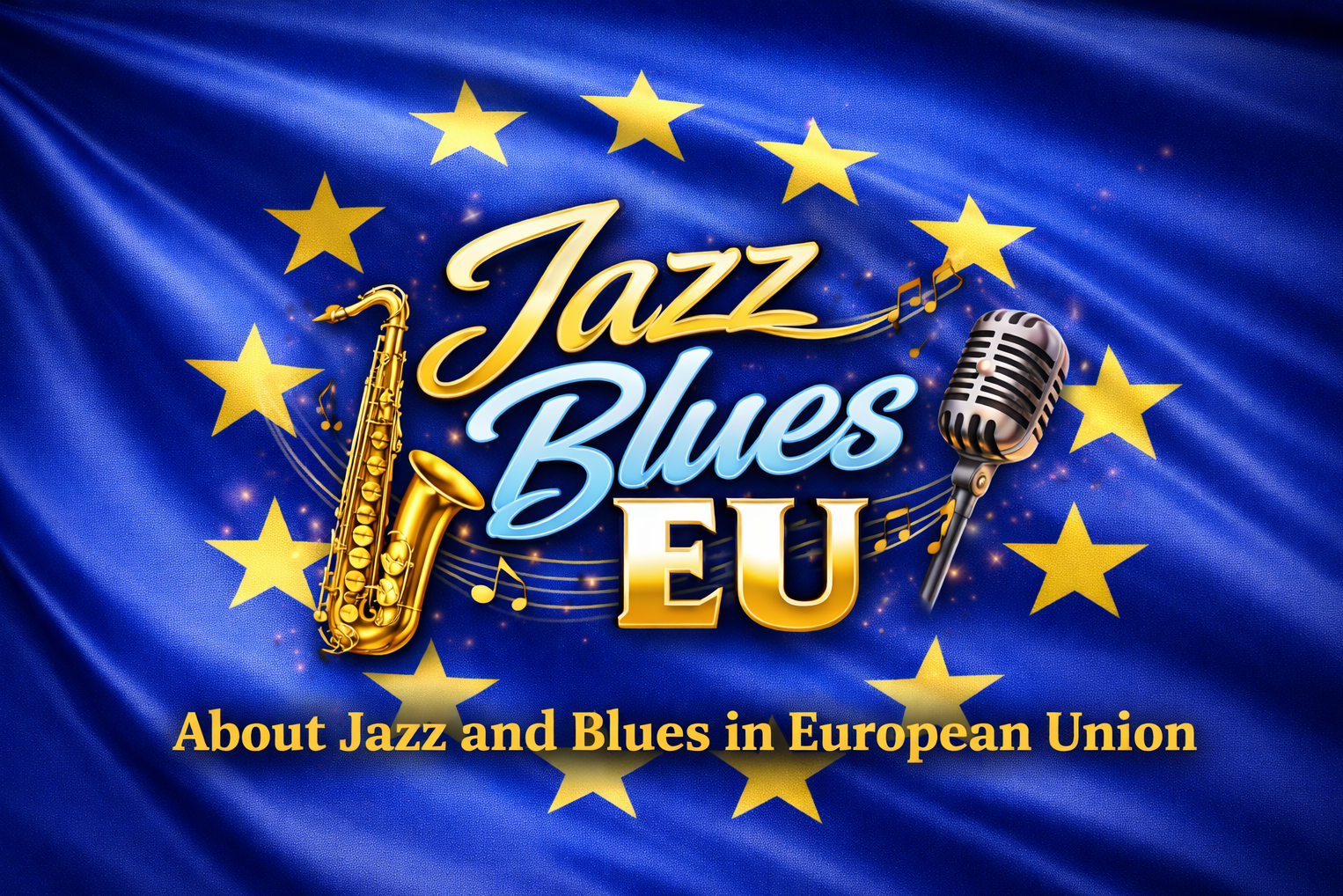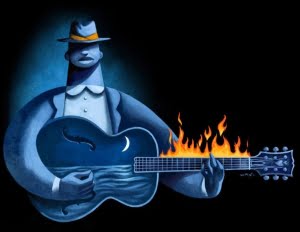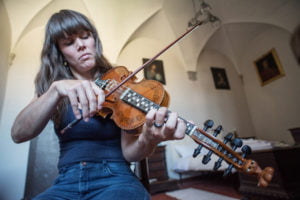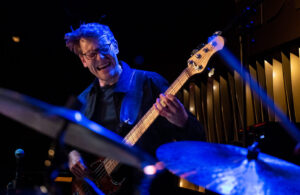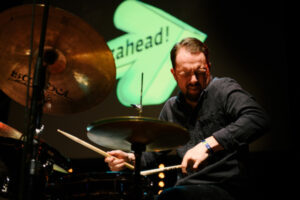
70 years ago, the marketing manager of his record company at the time effectively elevated him to the status of “Saxophone Colossus”.
Sonny Rollins, now 94, is today the most important living musician of a generation that was able to explore jazz and its seemingly inexhaustible possibilities freely and without encyclopedic or school-based preconceptions, because the map of modern jazz was far from being mapped out.
There were just as many role models as was needed to set off on one’s own journey, filled with new, fresh ideas and full of inspiration. They were, as in Rollins’ case with Thelonious Monk, often also personal mentors. Today it is hard to imagine that creativity had a completely different function back then than it does today.
Whereas today in jazz niches that have not yet been fully explored are only hesitantly filled (with the impulses mostly no longer coming from jazz, but from other genres), back then empty spaces had to be filled, the size of which was not yet foreseeable.
Of course, for a young saxophonist like Sonny Rollins, there was the course set by Coleman Hawkins, of course there was Charlie Parker, but above all there was an unimaginable amount of space to position oneself musically again and again, far away from epigonism.
In rapid succession and starting with bebop, over three decades there were collective musical and social awakenings that tore down traditions and proclaimed individual, even non-musical, rights. A musical spirit as original as Sonny Rollins can only be imagined in this climate.
Dogged, harsh, limitless and without compromise, he honed his powerful and often angry and coarse tone and developed a highly associative improvisation process with his stream of consciousness, which has set standards that are still valid today in terms of structure, melody and break-up of the beat, not only on his instrument.
This achievement, which is not a given in jazz, has gradually found very broad recognition. Rollins has received practically all the major music awards: from the Polar Prize, the very highly endowed “alternative Nobel Prize for Music”, to the NEA Jazz Masters Fellowship and the Kennedy Prize, to the Grammy for his life’s work.
The fourth edition of Sonny Rollins’ “Road Shows” CD has just been released. From his private archive of around 300 concert recordings from five decades, Rollins puts together ideal-typical fictional concerts that show him at the peak of his art.
That is a consolation for the fact that the trend-setting tenor saxophonist had to stop his previously very active concert activity last year.
The release of the album gave me the rare opportunity to speak to Sonny Rollins. This interview originally took place in 2016. The statements and references made in the interview refer to this point in time.
Jazz Blues EU: Dear Sonny Rollins, let’s take a quick look back. You were born in 1930 in Harlem, a melting pot that was absolutely full of music at the time.
Sonny Rollins: Oh yes, and I feel very lucky to have been born in Harlem. It was the epicenter of jazz. Practically all the great jazz musicians came to New York to play there. But Harlem was also the epicenter of the black community in general. That’s why this place was so important. Here I met people who inspired me. That is especially true of Fats Waller. I heard him as a young boy and was immediately fascinated by his music. From then on I knew what I wanted to do for the rest of my life.
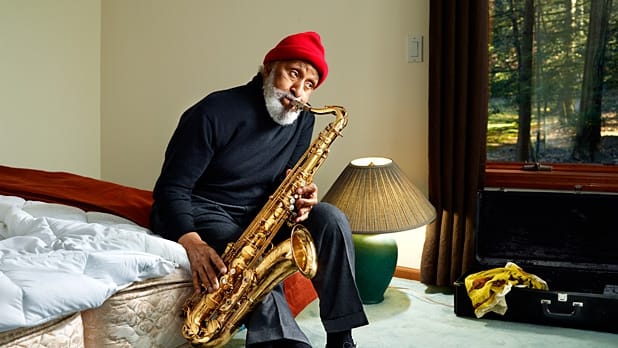
JBEU: – You spoke about the black community. For you, jazz was always political music. Has it changed anything?
SR: – In a certain way, the situation of black people has changed, but on the other hand, the basic problem is still there. It is very difficult to make real progress in terms of equality. Much of it is simply disguised by history, but has remained essentially unchanged. Progress is slow. It is all very complicated. If you want my opinion on this: the world will never really change. The hope that something could change for the better in the long term, that people would become better, is at best the stuff of a fantasy novel. It will not happen. The world is clearly not designed to exist in peace. Not this world. Perhaps there is such a paradise somewhere in the universe. Our world is not. Our world has always been one of resentment, of wanting to be right, of fighting and killing. We have to accept that. Small steps towards improvement may be possible from time to time and may even succeed. But the big picture is predetermined and unchangeable.
JBEU: – Your own life was also characterized by a tireless struggle for more freedom. Have you at least found something like peace within yourself, if it doesn’t seem possible in the world?
SR: That is a very good and legitimate question. No. I have never found peace within myself. Let me explain that so that no false impression is created. Every day I struggle to make myself a better person. And when I am on stage, I struggle to make myself a better musician. That is a permanent process. Inner peace would be a final result: a state that will never come. Although perhaps there is something like personal peace in having recognized that life works in exactly this way, that the highest is not possible. Because I have never experienced the happiness of having achieved as a person or musician what I imagine is possible. One can always be fairer, more generous, more humane than I am. I am still working on that. Every day.
JBEU: – They are perhaps the last great representative of an era. Do you feel a sense of responsibility towards history?
SR: – I think history put me in the body of a guy called Sonny Rollins and it must have had its reasons for doing so. That is karma. The unpredictability of life has made me what I am. And I have to deal with that. That applies to every person. Everyone has their own path to take. Every life has a different secret that contributes to its success or failure. My goal was always to gain a certain wisdom on this path. I always wanted to understand why I am in this place and what my task is. Because nothing happens without a reason. We just have to find it.
JBEU: – You are one of the relatively few jazz musicians who are paid appropriately, not to say lavishly, for their concerts. Do you remember when and how you achieved this status?
SR: – It was definitely difficult.

JBEU: – But you managed it.
SR: – Unfortunately, I have to answer that a little evasively so that it becomes clear what I’m really getting at. The difficult thing is that music first requires us to surrender ourselves to it completely. It is a spiritual force. We can’t explain it. It does something to us and we can’t escape it. Anyone who has the talent to make music will pursue it, they must pursue it, regardless of the consequences. And regardless of economic considerations. Back then, when I played with people like Bud Powell, Miles or Thelonious Monk, I never asked for money, although of course I felt that the rent had to be paid. But back then we simply lived for music. We wanted to create something that required all of our strength. There were no distractions for us. We lived for just this one thing. That may have become even more difficult these days. But the fact is: we can tell our lives what they should be. And that also means that someone who needs a regular, high income to understand life should perhaps become a manager or a doctor, or at least play music that the masses want to hear. Jazz is not suitable for that. I never cared about that. I never thought about money first. But I know a lot of young jazz musicians who, after getting married and having children, stopped playing music because they couldn’t support their families with it.
JBEU: – Do you think that’s fair?
SR: – No. But: I think that life shouldn’t be judged by its economic returns. I’ve met so many wonderful people in my life who were garbage collectors or did house repairs and certainly didn’t earn much money from it. I’ve learned that nothing in this world can be measured in terms of money. The important thing is that you can do what you’re meant to do. In my case, that’s music. I feel very lucky. So I make music first and foremost. For me, music has nothing to do with the everyday aspects of life, nothing to do with economic considerations, but with values such as love and freedom. It is something of principle.
JBEU: – The most significant expression of this freedom in your music is your understanding of improvisation, for which you coined the term stream of consciousness. What I find fascinating about it is the high degree of structure that characterizes your spontaneous playing.
SR: – That’s because I always know exactly what I’m playing. I have to study every melody, no matter how simple, almost compulsively. I analyze the melody, the harmonic structure, the general functioning of a piece. But the most important thing is the melody. I practice it until I can play it forwards and backwards, while awake and asleep, until it has become a part of me and has dissolved into me in a way. This changes my awareness of this melody. I stop thinking in it and about it while I play. That is exactly the moment when it starts. Before that, it makes no sense.
This process imperceptibly provides me with a new set of options that I can use intuitively when playing. Then I let the music flow and watch or listen to it. Everything now comes from the subconscious. I am often asked where a certain idea or phrase comes from, but all I can say is that I don’t know. What I do know is that it is a mirror of my subconscious. Music has its origins in the depths of the subconscious. Consciousness only serves to learn.

It is necessary to gain access to music, but it does not serve to perform it. Conscious action is perhaps best compared to the floors of a house. They are what arises from building on an invisible foundation. And our subconscious represents exactly that: it is the foundation, the base. We see the surface, but if we want to recreate or rebuild it, we have to know the foundation. Of course, such a foundation is unsuitable for living in.
We live on the upper floors, but we can only lead and understand this life because it has a foundation. And that is what the subconscious represents – in life as well as in music. It is the sum of our experiences, our fears, our hopes. The approach that also plays a role in Zen Buddhism, for example, of building and understanding everything from the depths, is for me the equivalent of my understanding of improvisation: drawing from the subconscious, which becomes a stream of consciousness. Consciousness is brought back to the deepest point of one’s own existence, it is fed by the subconscious. This makes us aware that there is something else behind or beneath our consciousness that is the real reason or the basic material for everything. That is the place of music. And there I don’t think, while I play there I know.
That doesn’t mean that I know what I’m going to play next, but that knowledge plays me. This process takes place so quickly that you don’t even have a chance to follow it mentally. I tried, of course. But I wasn’t able to think and play at the same time. If you start thinking while you’re playing, you destroy the flow of the music.
JBEU: – Does that mean that you immediately sense what is happening in their music and that you are always surprised by it yourself?
SR: – Yes. That’s right. When you listen to people like Louis Armstrong or John Coltrane, you sense that they always know exactly what they are playing and that their playing has an inexplicable depth. Because it reflects the depth of their subconscious. It’s not just about them knowing how to play something and being able to use the necessary technique, they bring something to the surface that is bigger than them.
JBEU: – Speaking of the subconscious: does that also mean that you already suspect during the recording sessions that albums like “Saxophone Colossus” or “The Bridge” would become milestones in jazz?
SR: – That’s actually a pretty funny question. Because the crazy thing is that you never really know where things are going. You might be able to recognize something special spontaneously, but you can’t yet classify it. I always knew I had a talent for music. And music is a question of talent. You can’t make yourself a jazz musician – you are one. At some point you go into the studio and make a record. If you’re lucky, people like what you’ve recorded. That doesn’t change the fact that you just tried to do a good job, like you always do. But I couldn’t possibly predict while recording how it would be received out there.

JBEU: – Do you have a perfect concert moment?
SR: – While I’m playing or when I look back?
JBEU: – Both.
SR: – Yes and no. I would say it is fundamentally important that I have the feeling that my ideas worked and the music flowed. And if my band was happy and the audience was moved, then I definitely get the impression that it was a really good evening. There is a force that guides me when I play, which is sometimes stronger and sometimes weaker, which also depends on how free my thoughts are at the time and how I can express them through my saxophone. In retrospect, there is of course sometimes the phenomenon, which at first glance seems a little disturbing, that the audience liked a concert that I didn’t like. Those are the moments when you realise that your own expectations are of course always higher and should be. I say that with all due respect.
After all, I play for the audience. Reaching a higher level of communication with them during a concert is still fascinating and an enormous motivation every evening. That’s why I’m very happy when people like what I play. But I have to admit: I’m even happier when I can like what I play. Your self-presentation on stage is very serious. Do you also see that as a socio-political statement? SR: You can certainly see it that way. It comes from the past. Jazz was never really accepted as a serious form of music by the wider music community. Jazz was not considered to have any value, but was often devalued as fun or dance music with no social or intellectual significance.
This of course also had socio-political or openly racist reasons. In any case, all of this is written into its history. Many jazz musicians suffered from this, for example in their dealings with record companies. So more and more musicians rebelled against it. With their music and by starting to appear very serious on stage. Take Charlie Parker. When he played, he usually stood upright, without any ecstatic contortions. He just played his music. That doesn’t mean that you as a musician or listener couldn’t still have fun. Dizzy Gillespie proved that very clearly.
Humor was part of his personality, but it never shaped or damaged the seriousness of his playing. I see myself in this tradition. I realized back then that it was important to say something with the way you present yourself on stage, because that is perceived as part of the performance and cannot be viewed in isolation from the music. Back then, in the 40s and 50s, it was all about a new seriousness in our music. We wanted jazz to be respected musically and socially.
JBEU: – Speaking of stage experience: Unfortunately, for health reasons, you have not been able to give any concerts recently. Will we see you on stage again?
SR: – I do have some health problems. But there are now completely new forms of drug therapy for them. Of course, I hope that this might give me the opportunity to return to the stage. At the moment, however, I cannot answer your question with a clear yes or no.
JBEU: – I still see this as good news at the end. There is one thing I would still like to know, however. If you could put together a band from the entire history of jazz, who would you hire?
SR: – You won’t be surprised if I say: There are so many. But in any case, and first of all, I would like to play with Fats Waller. You know, the nice thing about this question is that it makes me happy in that it shows me how many wonderful musicians I have been able to play with over the years and how much I have been influenced by them. Count Basie immediately comes to mind. It was a stroke of luck to have known him. And then he liked my playing a lot as a young musician. That was uplifting. Unfortunately, we only met towards the end of his career, so I never had the opportunity to play with him. I would like to make up for that. And of course I would have to put Louis Armstrong on my list too. But as I said, the good thing about this thought experiment is to realize how lucky I have been in my life and with my music. Although I know that it is not really my doing. The truth is, I was given a talent. It was not me who made me what I am, but this talent that was given to me! This realization hits me hard, by the way. Because I cannot stand up and say what a great musician this Sonny Rollins is and that he made that out of himself. No, it was given to me.
JBEU: – But you worked hard at it.
SR: – Without a doubt. But I loved it. So strictly speaking, it wasn’t work at all. At least I never felt it was. Do you know how it went for me when I played a concert? Before the sound check I always played a little on the saxophone, after the sound check I just carried on playing in my dressing room, then the concert came, and after the concert I still played backstage. Often I just carried on playing alone until the lights went out. Because that’s what I always wanted to do. I love it. It’s my life.

